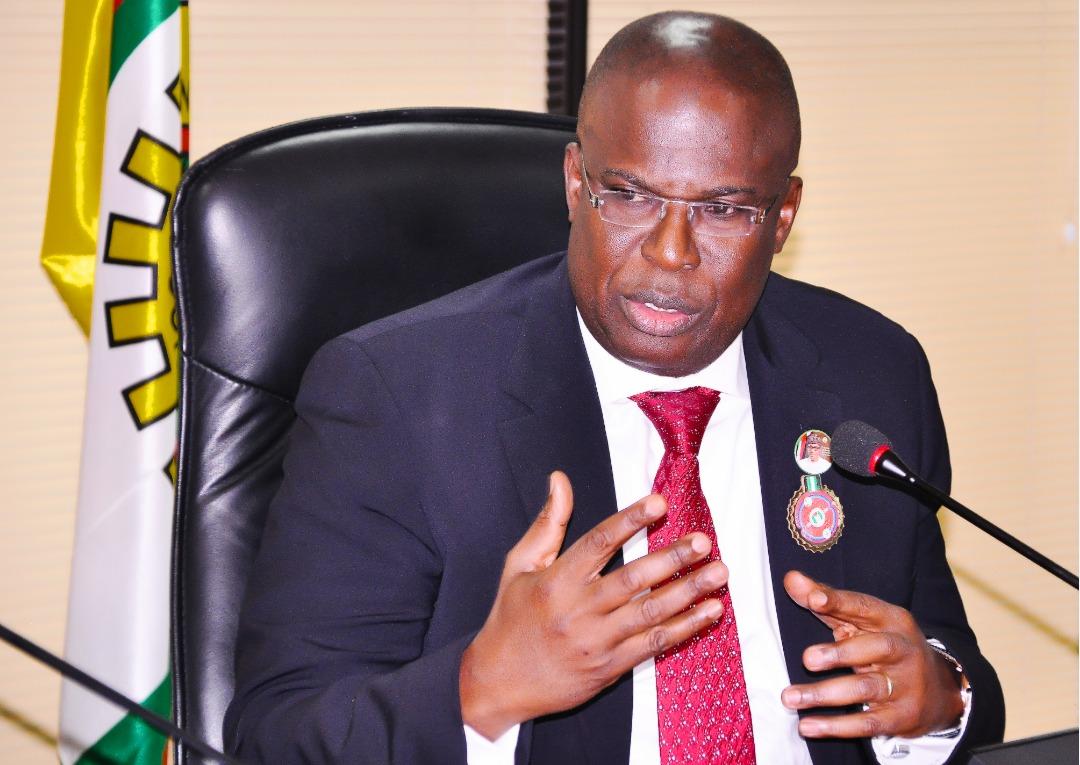The Minister of State, Petroleum Resources, Chief Timipre Sylva has averred that “the world’s 20 least-electrified countries are in Sub-Saharan Africa, where most of the global unserved population live.”
Speaking in a Keynote Address at the on-going 2022 Society of Petroleum Engineers (“SPE”) Lagos Annual Technical Symposium and Exhibition going today, Tuesday, May 17, 2022, he was quick to mention that “The foregoing does not mean it is all gloom and doom. The reason being that everyone in the world could have access to clean, affordable energy within the next nine – ten years if countries modestly increase investments, and this is according to UN’s Department of Economic and Social Affairs.”
According to him, “Annual investments of around $35 billion could bring electricity access for 759 million people who currently lack it, and $25 billion a year can help 2.6 billion people gain access to clean cooking between now and 2030.
He added that “The required investment represents only a small fraction of the multi-trillion-dollar global energy investment needed overall.
Explaining more on the theme: ‘‘Energy Transition In Africa: A Strategic Pathway To Net Zero,’’ the Minister, represented at the summit by Engr. Justice Mina Derefaka, his Technical Adviser (TA) on Gas Business & Policy Implementation, argued that “Globally, 759 million people lack access to electricity, and Sub-Saharan Africa accounts for three-quarters of the global population without access.
Approximately 580 million people in sub-Saharan Africa lack reliable electricity i.e., three-quarters of the global.
Around 900 million people are without access to clean cooking in Africa; and in 32 countries more than 75% of the population are without access to clean cooking.
Earlier, he noted that he was humbled and honoured to be part of this year’s symposium which has been so fittingly themed: ‘‘Energy Transition In Africa: A Strategic Pathway To Net Zero.’’
He said “I believe at the end of this Symposium, we are bound to achieve more efficient, coherent, and coordinated activities toward boosting energy access and developing Africa’s energy sector; plus, accelerating progress in scaling up investments in Africa’s energy industry through dialogue and partnerships.
“And the reason is simple, our continent is home to one-sixth of the world’s population and is already one of the world’s most affected regions by climate change. Despite this, it contributes less than 6% of world energy consumption and 2% of total global emissions.
Chief Sylva further agreed that “Africa has the ability to play a leading role and SHOULD play a leading role in the transition to a net-zero energy future. The continent’s diverse geography provides enormous promise for natural resources and our soils contain many of the minerals and rare earths required for clean energy technologies.
“No doubt there is more demand for energy in Africa and globally as the world’s population and living standards increase. Global energy demand will likely be almost 60% higher in 2060 than today. By 2070 the world is likely to be using at least 50% more energy than it does today as population grows and people seek to improve their quality of life.
According to the International Energy Agency (IEA), renewable energy is expected to support the growth of electricity from 20% to 50% of total energy supply by 2050. The remaining energy demand that is impossible to electrify will require cleaner solutions, which can only come from natural gas – the closest ally to renewables.
And I believe that in that context, a key decision and renewed impact we can make right now is to persist in expanding the role and opportunities of natural gas towards recovery and shared prosperity for a sustainable Africa and the world in general.
According to United Nations estimates, the current world population of 7.6 billion is expected to reach 8.6 billion in 2030, 9.7 billion in 2050 and 11.2 billion in 2100.
Half of the world’s population increase is anticipated to occur in just five nations in Africa between 2017 and 2050. They are Nigeria, the Democratic Republic of Congo, Ethiopia, Tanzania, and Uganda.
Distinguished ladies, and gentlemen, it may interest you to know that Nigeria is the fastest-growing country in the world. As a result, Nigeria’s population, which is currently the world’s seventh largest, is expected to overtake that of the United States and become the world’s third largest country by 2050 – Which means we will need more energy.
The UN has described energy as ‘’central to nearly every major challenge and opportunity the world faces today. Be it for jobs, security, climate change, food production or increasing incomes, access to energy for all is essential” Nevertheless, even today, little or no access to energy deprives part of the world’s population of the opportunity to improve their quality of life.
According to former UN Secretary-General, Mr. Ban Ki-moon, “Energy is the golden thread that connects economic growth, increased social equity and an environment that allows the world to thrive.”
His predecessor – Ghana’s late Kofi Annan, called the failure to provide energy to all as “one of the great injustices of the 21st Century”, Sylva noted.








